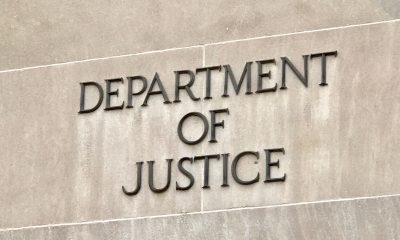Watchdog Group Declares FBI Corrupt At The Highest Level

Earlier this month, FBI Director Christopher Wray participated in an often contentious congressional hearing during which Republican lawmakers hammered him on apparent evidence of political bias within the ranks of the bureau.
According to many who witnessed Wray’s testimony, he did little, if anything, to assuage concerns about FBI corruption.
One prominent critic is Seamus Bruner, who serves as the director of research at the Government Accountability Institute. This week, he weighed in with a scathing rebuke of the FBI dating back well before Wray took the helm.
“The past four FBI directors have all been involved in some kind of political scandal, weaponizing the bureau against political opponents,” he said during a podcast interview.
After reading the damning report compiled by the House Subcommittee on the Weaponization of the Federal Government, Bruner concluded that corruption within the FBI “goes all the way to the top.”
The distrust many Americans show toward the FBI, he explained, is rooted in evidence that agents do not carry out their duties in an impartial manner.
Asserting that “80% of GOP voters believe that the 2024 election is also going to have nefarious involvement by the FBI,” Bruner added: “That’s a big problem. When Americans can’t trust both their elections and their law enforcement, they don’t have a whole lot of options.”
U.S. Rep. Jim Jordan (R-OH), who chairs the subcommittee, has also been outspoken in his critique of Wray and the FBI. In a letter co-signed by Subcommittee on the Constitution and LImited Government Chair Mike Johnson (R-LA), he took issue with Wray’s testimony regarding FBI-sanctioned censorship of social media content.
Addressing “several statements about the FBI’s actions relating to misinformation and disinformation that are contradicted by the findings of a federal court and information obtained by the Committee,” the letter added: “We write to provide you with an opportunity to amend your testimony.”
The referenced court case — Missouri v. Biden — resulted in the conclusion that the bureau “flagged domestic speech as potential disinformation and that the FBI ‘significantly encouraged’ social media platforms to take certain actions with respect to content.”
During his testimony, however, Wray insisted that the agency’s “focus is on malign foreign disinformation,” specifically “foreign hostile actors who engage in covert efforts to abuse … our social media platforms.”
























